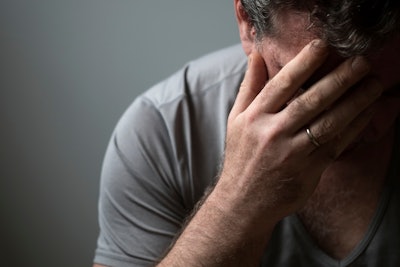
Two recent tragic incidents are again focusing attention on the mental health crisis in rural communities.
In late August, a farmer was found dead in his wheat field along with three other men in what authorities described as a murder-suicide.
Sheriff's deputies were dispatched to a wheat field south of Cando, ND, on August 29, after receiving a report of four unresponsive individuals. All four men had died from apparent gunshot wounds and a .357-caliber revolver was found near one of the bodies, according to the sheriff's office.
The second incident involved Ryan Thorpe, chief operating officer of Tharaldson Ethanol in Casselton, ND, who died at a lake home in Minnesota -- shocking the company and industry. Thorpe, age 47, died by suicide.
Suicide is one of the top 10 leading causes of death in the U.S. According to the Centers for Disease Control and Prevention, suicide rates are higher in rural America than in urban America.
It's no surprise that the last two years have been tough on many Americans, but those in rural America have added pressures due to fluctuating commodity prices, labor shortages, trade disruptions and more.
The impact of suicide in rural America
Suicide is a major public health concern across the U.S. According to Understanding the Impact of Suicide in Rural America, suicide continues to be higher in rural counties and the gap between rural and urban suicides has widened over time.
According to a 2020 report from the CDC, from 2000 to 2018, the rural suicide rate increased by 48% while urban rates increased by 34%. In 2018, the suicide rate in rural counties was 19.4 deaths per 100,000 compared with urban counties at 13.4 deaths per 100,000.
The good news is, there is a reduced stigma around rural mental health. According to the American Farm Bureau Federation (AFBF), farmers and people in rural areas are more comfortable talking about stress and mental health challenges with others, and stigma around seeking help or treatment has decreased in rural and farm communities.
Rural depression: Know the warning signs of suicide
It's important to recognize the subtle signs of chronic stress, depression or suicidal intent and what you can do to help.
- Change in routines or social activities
- Decline in the care of domestic animals
- Increase in illness or other chronic conditions
- Increase in farm accidents
- Decline in appearance of the farmstead
- Decreased interest in activities or events
More common warning signs might include:
- Talking about dying or wanting to die
- Talking about feeling empty, hopeless or having no way out of problems
- Mentioning strong feelings of guilt and shame
- Talking about not having a reason to live or that others would be better off without them
- Social withdrawal and isolation
- Giving away personal items and wrapping up loose ends
- Saying goodbye to friends and family
5 action steps for helping someone in emotional pain
If you suspect someone is feeling suicidal, don't wait for them to ask for help. If they’re willing to reach out, encourage them. Try not to compare their challenges to someone else’s, or minimize what they’re going through. What matters most is showing genuine empathy and listening.
- ASK: “Are you thinking about killing yourself?” It’s not an easy question but studies show that asking at-risk individuals if they are suicidal does not increase suicides or suicidal thoughts.
- KEEP THEM SAFE: Reducing a suicidal person’s access to highly lethal items or places is an important part of suicide prevention. While this is not always easy, asking if the at-risk person has a plan and removing or disabling the lethal means can make a difference.
- BE THERE: Listen carefully and learn what the individual is thinking and feeling. Research suggests acknowledging and talking about suicide may in fact reduce rather than increase suicidal thoughts.
- HELP THEM CONNECT: Save the 988 Suicide & Crisis Lifeline number (call or text 988) and the Crisis Text Line number (741741) in your phone so they’re there if you need them. You can also help make a connection with a trusted individual like a family member, friend, spiritual advisor or mental health professional.
- STAY CONNECTED: Staying in touch after a crisis or after being discharged from care can make a difference. Studies have shown the number of suicide deaths goes down when someone follows up with the at-risk person.
Mental health resources for rural Americans
If you or someone you know is struggling with anxiety, depression or another mental health challenge, you are not alone. The AFBF has its Stronger Together initiative that offers a lot of great resources to bring awareness to this issue.
Check out the following resources for help:
988 Suicide & Crisis Lifeline: The 988 Suicide & Crisis Lifeline is a national network of local crisis centers that provides free and confidential emotional support to people in suicidal crisis or emotional distress 24 hours a day, 7 days a week in the U.S.
Farmer Stress: This website features information about managing stress and seeking help, as well as specific resources for mental health providers.
Man Therapy: Man Therapy is giving men a resource to help with any problem that life sends their way, something to set them straight on the realities of suicide and mental health, and a tool to help put a stop to suicide deaths.
Zero Suicide: The foundational belief of Zero Suicide is that suicide deaths for individuals under the care of health and behavioral health systems are preventable.
FarmResponse Training: AgriSafe’s FarmResponse course provides the full range of competencies necessary to provide appropriate mental healthcare for agricultural producers and their families.
Suicide Prevention Resource Center (SPRC): A premiere source of information on the topic of suicide prevention.



















